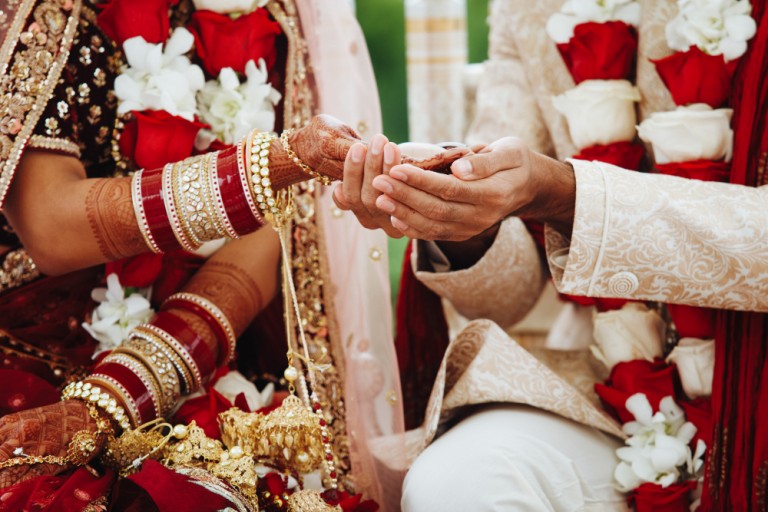18 Gotras of Agrawal Community – Understanding Agrawal Lineage in Hindu Matrimony
Jun 11, 2025
The Agrawal (or Agarwal) community is among the most respected and influential business communities in India. Widely recognized for their entrepreneurial excellence and strong value system, the Agrawals have carved a niche for themselves across various sectors, especially in trade, commerce, and finance.
However, beyond the commercial identity lies a deeply rooted spiritual and cultural framework that defines the Agrawal way of life. At the heart of this framework is the concept of Gotra—a traditional system of lineage that has been followed for centuries. Gotras not only reflect ancestral connections but also serve as crucial markers during matrimonial alliances.
At Wedding Alliances, a leading matrimony service in Delhi and India, we understand the significance of Gotra in Hindu weddings. We take great pride in helping families find ideal matches while honoring customs like Gotra compatibility.
What is a Gotra?
In ancient Vedic culture, a Gotra denotes a person’s ancestral clan or lineage, primarily traced through male ancestors. Each Gotra is believed to be descended from a particular Rishi (sage), who was considered to be the originator or founder of that line. Over generations, Gotras helped categorize and distinguish individuals and families within a broader community.
In traditional Hindu society, Gotra is more than just a surname or title—it represents one’s spiritual heritage. A person belonging to a particular Gotra is seen as a descendant of that sage and is therefore spiritually considered part of the same extended family as others with the same Gotra.
Due to this, Hindu marriage customs discourage or outright prohibit marriage between individuals of the same Gotra. It is viewed as marrying someone from your own lineage, which is traditionally equated with marrying a biological sibling. This is one of the many ways Hindu society aimed to maintain both genetic diversity and spiritual sanctity in familial relationships.
Origin of the Agrawal Community
The Agrawal community traces its origins to the legendary King Agrasen, a ruler known for his wisdom, fairness, and deep sense of justice. King Agrasen founded the ancient city of Agroha in present-day Haryana and established a kingdom based on values of equality, compassion, and collective prosperity.
According to historical and mythological accounts, King Agrasen had 18 sons, and each son started a Gotra. These 18 Gotras became the foundational lineages of the Agrawal community. They were created to help organize the community structure, uphold social order, and avoid inbreeding during matrimonial alliances.
Over time, these Gotras not only maintained social discipline but also became a strong identity marker for Agrawal families across India.
The 18 Gotras of the Agrawal Community
Here is a list of the 18 original Gotras of the Agrawal community:
-
Garg
-
Mangal
-
Goel (Goyal)
-
Kansal
-
Singhal
-
Mittal
-
Bansal
-
Jindal
-
Tayal
-
Goyal
-
Bindal
-
Narangal
-
Bhandal
-
Airan
-
Dharan
-
Madhukul
-
Kuchhal
-
Nangal
While some of these names may sound similar (for example, Goel and Goyal), they are often treated as distinct based on family traditions. Each Gotra is associated with certain attributes, ancestral roots, and in some cases, even specific deities or kuldevtas (family gods).
These Gotras are respected even today and are cross-checked before finalizing matrimonial alliances, especially in traditionally rooted families.
Role of Gotra in Matrimonial Matching
In Hindu matrimonial practices, especially among the Agrawal community, Gotra compatibility is taken seriously. The fundamental rule is that a man and a woman from the same Gotra should not marry, as they are considered to share the same bloodline.
The principle behind this rule is both genetic and cultural:
At Wedding Alliances, we understand the weight of this tradition. Our expert matchmakers make sure that Gotra details are verified and taken into account while recommending potential matches. This not only meets family expectations but also:
-
Ensures respect for community traditions
-
Promotes culturally compatible alliances
-
Leads to emotionally harmonious and spiritually aligned marriages
Wedding Alliances: Honoring Tradition with Technology
While many matrimonial platforms today focus only on modern filters such as location, profession, or lifestyle, Wedding Alliances stands out by merging technology with tradition.
We believe that every community has its own sacred values and customs—and these must be preserved even in today’s fast-paced, globalized world. Our matchmaking platform and personalized services are designed to respect key cultural components like:
-
Gotra matching
-
Caste and community preferences
-
Family values and religious beliefs
-
Astrological compatibility (if desired)
Whether you're based in Delhi, Mumbai, Bangalore, or even abroad, if you belong to the Agrawal community, we can help you find a partner who matches your values—not just your lifestyle.
Preserving Heritage Through Meaningful Matches
The tradition of Gotras is not just about restrictions—it is about maintaining the integrity of one's lineage, honoring the wisdom of ancestors, and fostering a sense of community identity. In today's world where individual preferences often take center stage, it is refreshing and comforting for many families to know that services like Wedding Alliances continue to uphold these meaningful customs.
Our goal is to create matches that are not only emotionally and practically compatible but also spiritually and culturally harmonious. A good marriage, after all, is built not just on mutual attraction but on shared values, respect for heritage, and a common understanding of traditions.
At Wedding Alliances, we’re committed to walking that extra mile—ensuring that your marriage is not just a union of two individuals but a celebration of generations of wisdom, love, and cultural pride.
Looking for a life partner within the Agrawal community who aligns with your traditions and family values?
Explore authentic profiles and connect with families that share your cultural roots at Wedding Alliances.
FAQS:
1. Why is Gotra important in Hindu matrimonial alliances?
Gotra represents a person’s ancestral lineage traced back to a sage or rishi. In Hindu tradition, marrying within the same Gotra is discouraged to maintain genetic diversity and spiritual sanctity, as people from the same Gotra are considered siblings. Hence, Gotra compatibility is essential during matrimonial matching.
2. Can two people from different surnames have the same Gotra?
Yes, Gotra is based on lineage, not necessarily the surname. It’s possible for two individuals with different surnames to share the same Gotra if they trace their ancestry back to the same sage. Therefore, Gotra verification is important regardless of the family name.
3. How does Wedding Alliances help in finding Gotra-compatible matches?
At Wedding Alliances, we carefully collect Gotra details from both families and use them to shortlist suitable, culturally compatible matches. Our experienced matchmakers respect traditional values and ensure that Gotra norms are considered during the matchmaking process.
4. Are Gotras relevant for all Hindu communities or only Agrawals?
Gotra is a concept followed by most Hindu communities across India, not just Agrawals. However, the list of Gotras and associated customs may vary from one community or region to another. For Agrawals, the 18 Gotras are of particular cultural importance.
5. Can Gotra be changed or updated for matrimonial purposes?
No, Gotra is inherited by birth and remains constant throughout a person’s life. It is based on one's paternal lineage and cannot be changed or updated. For matrimonial purposes, it is important to provide accurate Gotra information to ensure compatibility and respect traditional practices.


